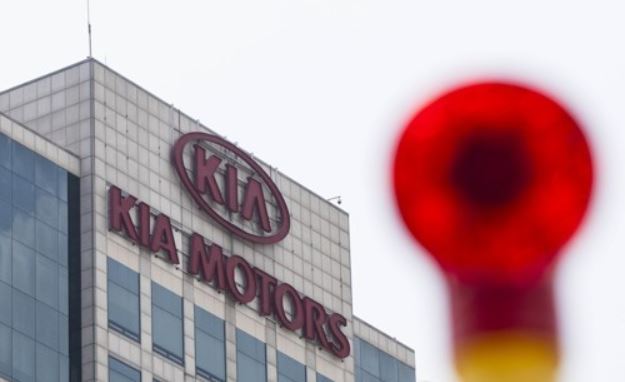Firms reorganize wage systems to head off possible court battle after Kia case: sources
By YonhapPublished : Sept. 20, 2017 - 11:03
South Korean companies are struggling to restructure their wage systems to stave off a possible court battle over "ordinary wage" which serves as the basis for overtime, severance and other payments, industry sources said Wednesday.
The move comes as the Seoul Central District Court ruled last month that fixed bonuses and meal costs are part of ordinary salaries and that Kia Motors Corp. should pay an overdue amount of 422.4 billion won ($373.2 million), or 38.7 percent, of what the union has requested.
In 2011, 27,424 Kia union members filed a suit demanding the company recognize regular bonuses, meal allowances and daily expenses as part of the ordinary wage, claiming 1.09 trillion won, or about 110 million won per worker, in back payments accrued from the three years prior to the litigation.
The move comes as the Seoul Central District Court ruled last month that fixed bonuses and meal costs are part of ordinary salaries and that Kia Motors Corp. should pay an overdue amount of 422.4 billion won ($373.2 million), or 38.7 percent, of what the union has requested.
In 2011, 27,424 Kia union members filed a suit demanding the company recognize regular bonuses, meal allowances and daily expenses as part of the ordinary wage, claiming 1.09 trillion won, or about 110 million won per worker, in back payments accrued from the three years prior to the litigation.

"Companies prefer introduction of a new wage system in which bonuses are connected to performance," an official of the Korea Employers Federation said. "However, this system sometimes triggers tension with workers and results in conflicts with labor unions."
Such a system, which will make it hard to connect bonuses with ordinary wage, faces vehement opposition from labor unions.
Unionized workers prefer including bonuses, meal allowances and daily expenses as part of the ordinary wage system.
Some companies have compromised with certain firms including part of regular bonuses in the ordinary wage while linking the rest to performance.
Many South Korean companies pay regular bonuses aside from ordinary salary. Firms argue that if the bonus is counted as ordinary wage, they have to shoulder a huge financial burden as overtime, retirement and any other allowances are set based on the ordinary wage.
"We are very much concerned about the possibility of our workers filing a suit on ordinary wage as courts have ruled differently on the principle of good faith," a food company official said.
As many as 115 workplaces have engaged in a legal battle over the issue since 2013 when the Supreme Court ruled in favor of a midsize auto parts company that periodic bonuses should be added to the ordinary wage as they are defined as a salary that's paid "regularly, uniformly and on a fixed basis."
At issue is "the principle of good faith," a norm widely used in civil law that one must not ask for something to their own benefit in a deal that will infringe on the rights of the other party.
"Many companies ask our federation on the application of the principle of good faith as courts have ruled differently on it," a KEF official said. "Others are seeking advice on how to reorganize the wage system." (Yonhap)








![[Kim Seong-kon] Democracy and the future of South Korea](http://res.heraldm.com/phpwas/restmb_idxmake.php?idx=644&simg=/content/image/2024/04/16/20240416050802_0.jpg&u=)








![[KH Explains] Hyundai's full hybrid edge to pay off amid slow transition to pure EVs](http://res.heraldm.com/phpwas/restmb_idxmake.php?idx=652&simg=/content/image/2024/04/18/20240418050645_0.jpg&u=20240418181020)

![[Today’s K-pop] Zico drops snippet of collaboration with Jennie](http://res.heraldm.com/phpwas/restmb_idxmake.php?idx=642&simg=/content/image/2024/04/18/20240418050702_0.jpg&u=)